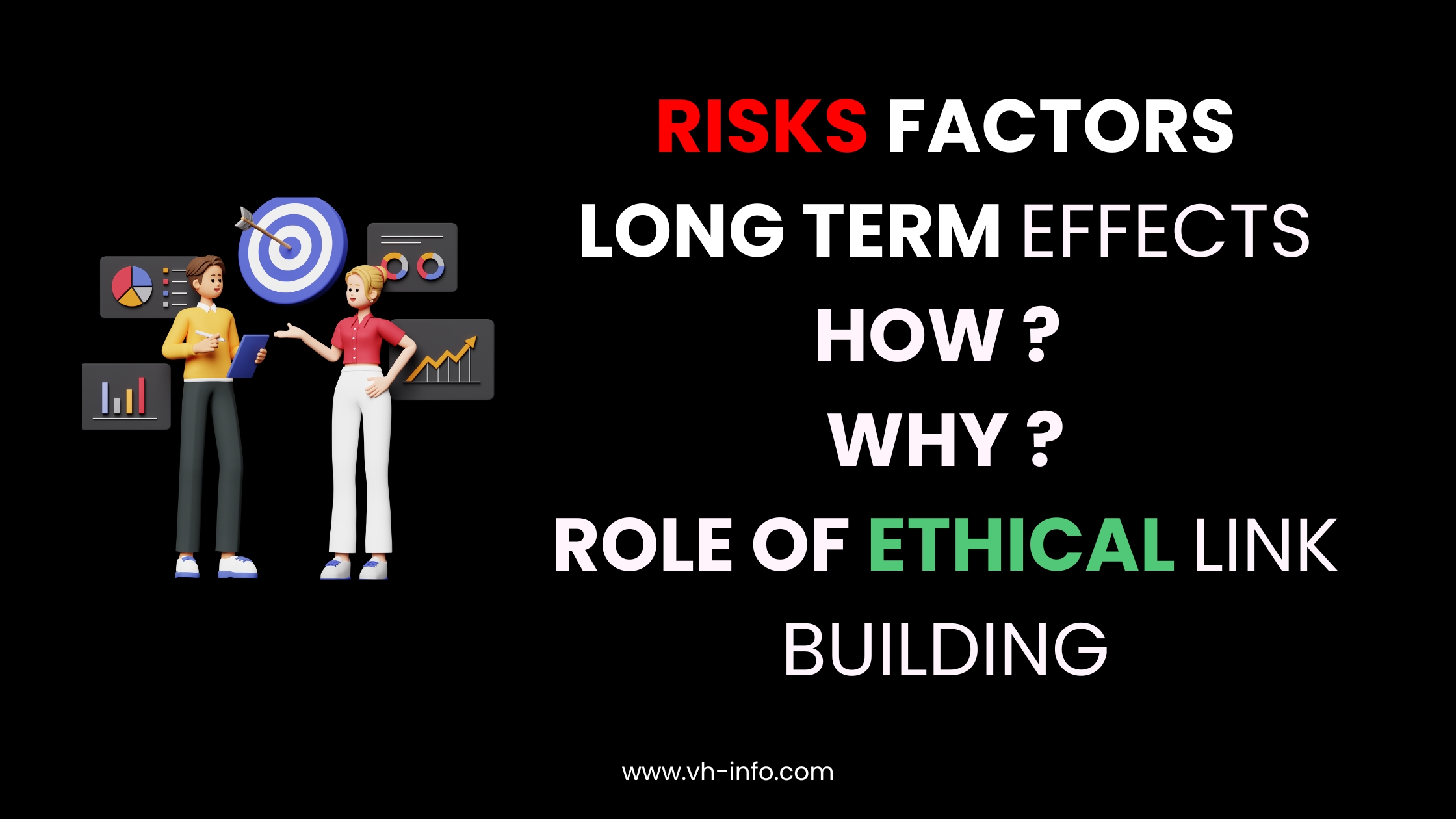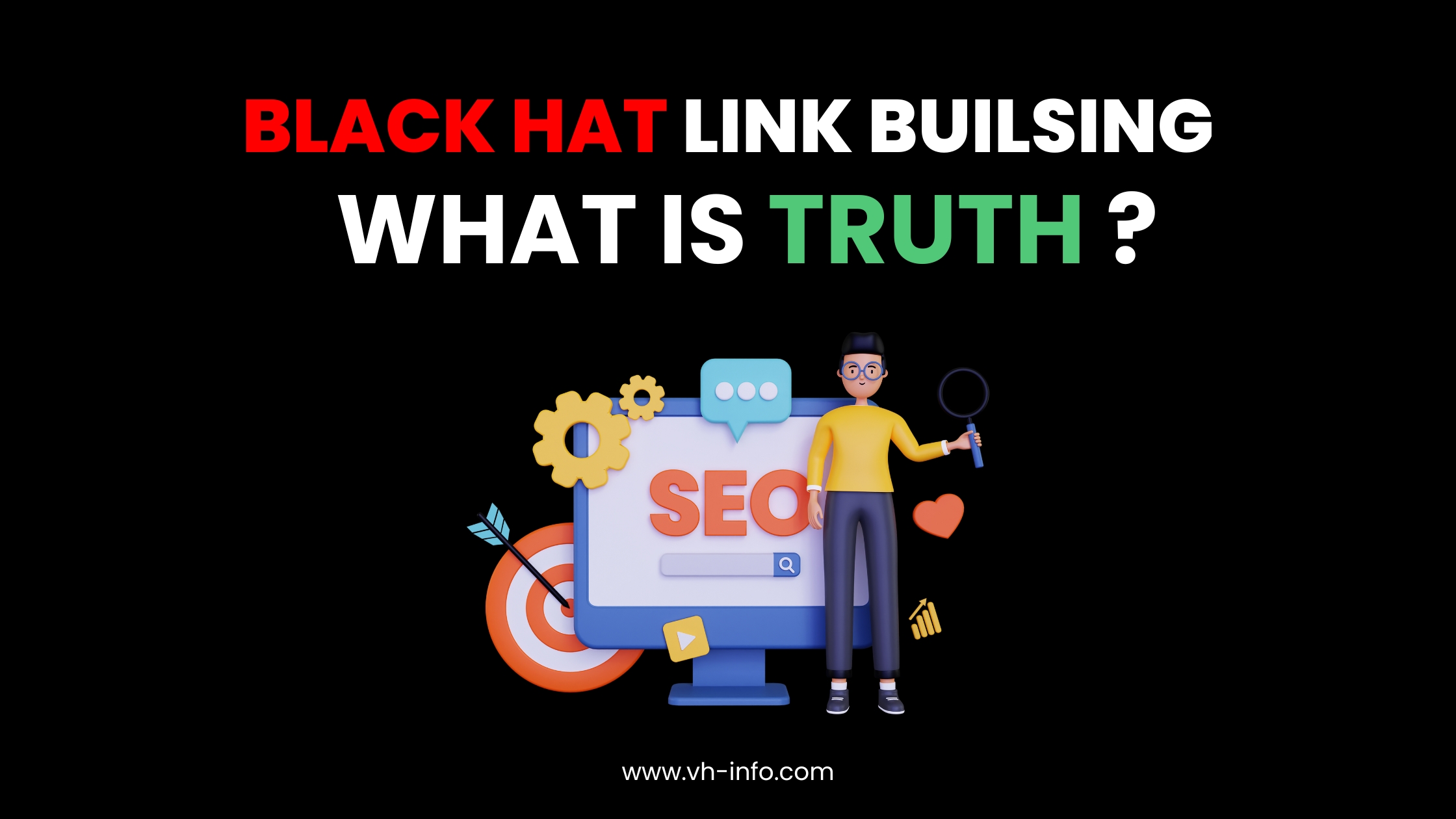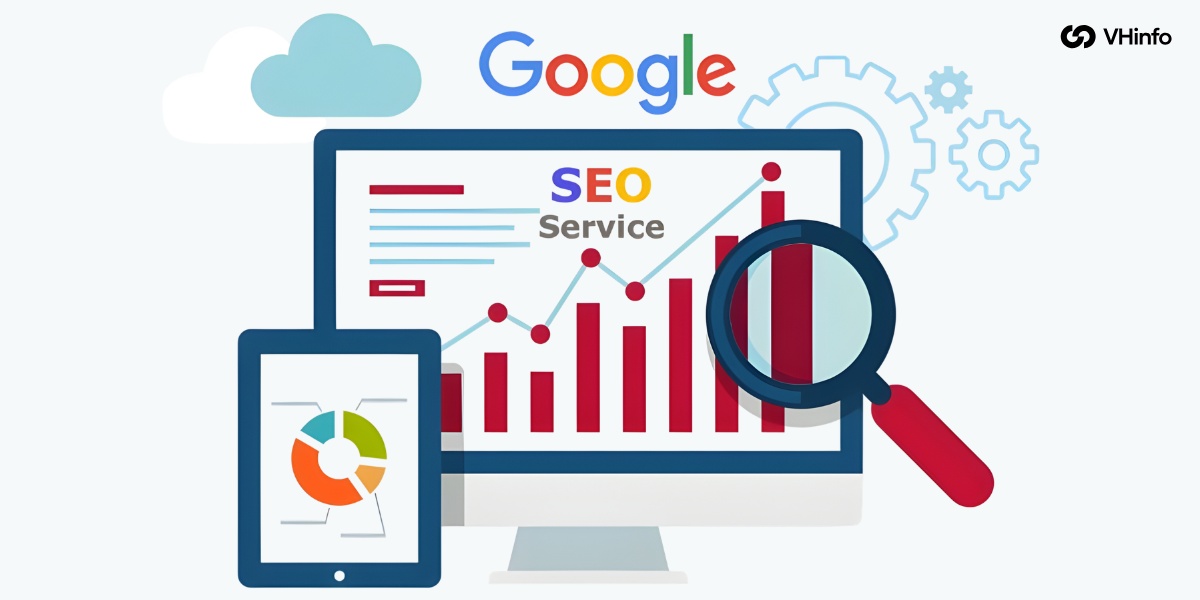Introduction to Blackhat Link Building: Definition and Examples
Building links is a crucial part of search engine optimization (SEO), as it gives search engines the information they may use to assess a website’s authority and relevance. But not every link-building technique is the same.
Blackhat link building is the practice of obtaining backlinks using unethical means in order to manipulate search engine results.
These methods are against Google’s Webmaster Guidelines and may subject users to harsh punishments, including a reduction in rankings or removal from the search results entirely.
Blackhat link-building techniques include, for instance, comment spamming, bought links, and link farms.
Paid links entail buying connections on other websites, whereas link farms are collections of inadequate websites made purely to produce links. Spamming comments on blogs and forums with links to irrelevant comments is known as comment spam.
Blackhat link building may appear to be a quick and simple technique to improve search ranks, but it can have negative long-term effects on a website’s reputation and SEO strategy. In this blog series, we will examine the reality of blackhat link creation and its effects on SEO.
The Consequences of Using Blackhat Link Building Techniques: Google Penalties and Algorithm Updates
Using unethical link-building methods can have serious, long-lasting effects. Google continuously updates its algorithms to recognize and penalize websites that follow such practices. By partnering with a professional web design company, you can ensure that your website gains organic, high-quality backlinks that will improve its visibility and ranking in search engine results.
Users may have a tougher time finding your website through organic search as a result of these penalties, which can cause a big reduction in search ranks.
Google’s Penguin algorithm, which was created expressly to combat link spam, targets websites that make excessive use of purchased links, link farms, and other manipulative link-building techniques. The consequences can be anything from a full removal from the search results to a partial loss of ranking.
Additionally, Google modifies its algorithms frequently to make it easier to recognize and penalize blackhat link-building practices. The search rankings of a website may be significantly impacted by these adjustments, and it may be difficult to reverse a penalty.
Blackhat link building can harm a website’s reputation and brand image in addition to its immediate effects. Users might think the website is spammy and unreliable, which could result in less traffic, engagement, and money being made.
To boost your website’s SEO and reputation, it is crucial to stay clear of black hat link-building strategies and concentrate on creating high-quality, relevant, and ethical backlinks.
The Risks of Blackhat Link Building for Your Website’s Reputation and Brand Image
 Beyond the immediate repercussions of Google fines and algorithm upgrades, blackhat link creation poses further hazards. The reputation and brand image of your website might be harmed by engaging in unethical tactics to manipulate search engine rankings, which will eventually hurt your business in the long run.
Beyond the immediate repercussions of Google fines and algorithm upgrades, blackhat link creation poses further hazards. The reputation and brand image of your website might be harmed by engaging in unethical tactics to manipulate search engine rankings, which will eventually hurt your business in the long run.
Blackhat link-building strategies like link farms purchased links, and comment spamming might give the impression that your website is spammy and unreliable.
This may cause people to lose trust in your website and consider it low quality or irrelevant. Users are less inclined to interact with your material or spread it to others, which lowers the visibility and audience of your website.
Additionally, unfavorable opinions of your website may spread to other aspects of your company, which could be harmful to your reputation and brand image. Negative testimonials, remarks on social media, and word-of-mouth can spread swiftly and damage your reputation.
Therefore, it is essential to concentrate on developing trustworthy, ethical, and high-quality backlinks that support the objectives and principles of your website.
These links can strengthen your website’s authority, improve its exposure, and foster user confidence. This can therefore result in a good reputation and brand image, which will eventually be advantageous to your company in the long run.
The Long-Term Effects of Blackhat Link Building on Your SEO Strategy
Blackhat link building can have disastrous long-term implications on an SEO strategy for a website. Using unethical link-building techniques might result in sanctions, lower ranks, and a poor track record.
Long after the original penalty has been lifted or the blackhat connections have been taken down, these impacts may still be felt.
Once a website has received a penalty for using blackhat link building, it may take some time and work for it to regain its lost rankings. Losses in traffic leads, and sales could come from the penalties, which would negatively affect the company’s bottom line.
Moreover, even after the penalties have been lifted, the consequences of blackhat link building may still be felt. It can become more difficult to acquire and keep high ranks as a result of search engines’ continued distrust of the website.
Additionally, the brand image and reputation of the website could be damaged, which could reduce user and potential consumer confidence.
To maintain an effective and long-term SEO strategy, it is crucial to keep evidence of blackhat link building techniques and concentrate on creating high-quality, appropriate, and ethical backlinks.
How to Identify Blackhat Link Building Techniques Used Against Your Website
Blackhat link-building tactics that have been utilized against your website must be identified in order to address and resolve the problem. Here are several methods to spot unethical link-building practices:
- Perform a backlink analysis: Examine the backlink profile of your website using tools like Ahrefs or SEMrush. Look for links that have been acquired in big numbers quickly from irrelevant or low-quality websites.
- Analyze the anchor text used in links leading to your website by checking it. It can be an indication of manipulative link building if the same anchor text is used frequently or contains unrelated keywords.
- Watch Your Referral Traffic: Keep an eye on your referral traffic to spot any odd trends or traffic peaks. Link spamming may be evident if there is an abrupt spike in traffic from irrelevant or suspicious websites.
- Review Comments and User-Generated Content: Keep an eye out for any spammy or irrelevant links in the comments and user-generated content on your website.
Blackhat link building strategies should be recognized and avoided to avoid penalties and boost the SEO performance of your website. To preserve the integrity and relevancy of your website’s backlink profile, it is crucial to regularly check and analyze it.
Why Blackhat Link Building is Not a Sustainable SEO Strategy: Alternatives to Consider
Blackhat link building could appear to be a simple and quick technique to improve your website’s search engine rankings, but it is not a long-term SEO strategy.
It is a bad option for creating a powerful online presence due to the dangers of penalties, harm to your website’s reputation, and long-term negative impacts.
Instead, concentrate on creating trustworthy, ethical, and high-quality backlinks that support the objectives and principles of your website. Here are some substitutes to take into account:
- Guest blogging: Contributing to relevant, authoritative websites as a guest blogger can assist establish the authority of your website and create high-quality backlinks.
- Broken Link Building: You can gain backlinks by identifying broken links on reputable websites and offering to replace them with useful and relevant content.
- Content marketing: Producing excellent, informative, and engaging content can get genuine backlinks from other websites, enhancing the SEO performance of your website.
- Social media marketing: By distributing your content on social media sites, you can make it more visible and draw in organic backlinks.
Focusing on these alternatives will help you develop a long-lasting SEO plan that will raise the search engine ranks and online visibility of your website without utilizing unethical link building techniques.
The Role of Ethical Link Building in Your SEO Strategy: Best Practices and Benefits
Search engine optimization (SEO) has become a crucial component of online marketing tactics in the current digital era.
Link building, the process of obtaining backlinks from other websites to your site, is crucial to the success of an SEO strategy. But not all link-building techniques are morally right, and utilizing unethical tactics may result in harsh penalties from search engines.
Making useful and relevant content that other websites would inevitably want to connect to is a component of ethical link building strategies.
This entails producing content that meets the demands of your readers and offers answers to their issues. You can also engage in social media marketing, contact influential people in your business, and guest post on credible websites to generate links.
Using ethical link-building techniques has various advantages. As search engines use backlinks as an indication of a website’s authority and relevancy, it helps to raise your website’s search engine rating.
Additionally, it boosts the visibility of your company because connections from reputable websites might draw in a more niche audience. Furthermore, using ethical link-building techniques can improve your online reputation and make it simpler to gain the trust of future clients.
In conclusion, a successful SEO plan must include ethical link building. You may raise your website’s visibility, reputation, and search engine ranking while avoiding penalties from search engines by producing high-quality content and engaging in trustworthy link building strategies.Read more about : What Does NFS Mean On Instagram ?
The Connection Between Blackhat Link Building and Negative SEO: What You Need to Know
An unethical SEO strategy known as “blackhat link building” involves utilizing fraudulent techniques to acquire backlinks to a website.
These methods are prohibited by search engine policies and can incur serious penalties, such as a drop in search engine rankings or even complete removal from search engine results pages (SERPs).
Negative SEO and blackhat link building are closely related. By using unethical SEO techniques, such as blackhat link building, negative SEO is a tactic used to undermine a competitor’s website.
In order to lower a website’s search engine ranks, negative SEO tactics may include building spammy backlinks, hacking a website, or plagiarising content.
The relationship between blackhat link building and bad SEO is crucial to understand since it can substantially affect your website’s online reputation and search engine ranking.
If your website is a victim of negative SEO, it’s vital to determine the source of the problem and take corrective action. Negative SEO can be lessened by keeping a regular eye on your website’s backlink profile and removing spammy backlinks with Google’s disavow tool.
In conclusion, there is a connection between negative SEO and blackhat link building. To protect yourself from negative SEO, it’s critical to follow ethical SEO procedures and keep an eye on the backlink profile of your website.
How to Recover from a Google Penalty Resulting from Blackhat Link Building Techniques
You must move quickly to restore your website’s search engine rating and online reputation if you have received a Google penalty as a result of using blackhat link-building strategies. The following steps will assist you in recovering from a Google penalty:
- Determine what led to the penalty: You must be aware of the type of penalty you have gotten and what led to it. You should look at Google’s webmaster guidelines to identify the specific infraction.
- Get your backlink profile in order: Delete any spammy or pointless links that go against Google’s rules. If you cannot manually remove links, use the Google Disavow tool.
- Reconsideration request: After you’ve improved your backlink profile, send Google a reconsideration request. Give details on the actions you’ve made to solve the problem and evidence to back up your assertions.
- Focus on ethical SEO tactics: In the future, give ethical SEO tactics top priority to avoid additional penalties. Produce high-quality material, take part in ethical link building efforts, and concentrate on establishing a solid online reputation.
Following these instructions and maintaining ethical SEO practices will help you recover from a Google penalty from blackhat link building strategies and restore your website’s search engine rating and online reputation.
Conclusion: The Importance of Building High-Quality and Relevant Links for Long-Term SEO Success
In summary, creating relevant and high-quality links is crucial for long-term SEO performance.
Getting excellent backlinks can have a big impact on your website’s search engine position and online reputation because search engines use backlinks as an indication of a website’s authority and relevancy.
The secret to constructing relevant and high-quality links is to give ethical SEO techniques top priority. You can gain backlinks organically by producing excellent and pertinent content, connecting with industry influencers, and using social media for marketing.
Additionally, you can avoid penalties from search engines by keeping an eye on your backlink profile and constantly removing any spammy or pointless links.
Ethical link building techniques may take longer to show results, but the rewards are worthwhile. A website’s search engine ranking, ability to draw in a more niche audience, and online reputation can all be improved by having a strong backlink profile.
Building relevant and high-quality relationships is more important than ever in the current digital era of fierce competition. You may achieve long-term SEO success and build a powerful online presence by giving valuable content creation and ethical SEO practices a top priority.
Chirag Padaliya
Chirag Padaliya is an Outreach & Link Building Specialist at VH-Info. He likes discussing digital marketing strategies, link building, and off-page SEO. He’s learning more about SEO and content creation. In his free time, he loves to watch films, sports and listen to music. He also likes to do exercise and yoga.
You can always reach out to Chirag on LinkedIn.



